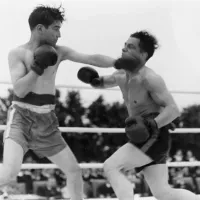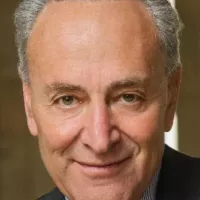India's first appearance at the Olympic Games took place in 1900, with Norman Pritchard as its sole representative. Pritchard made history by securing two silver medals in athletics, marking the first instance of an Asian nation earning Olympic glory.
1900: First Indian Olympic Medalist
In 1900, Norman Pritchard became the first Indian athlete, and the first Asian athlete, to win an Olympic medal when he won two silver medals in athletics.
1900: India's First Olympic Appearance
India's Olympic journey began in 1900 when they sent their first athlete to the Summer Olympics, marking their entry into the global sporting stage.
1920: India's First Olympic Team
After sending a single athlete in 1900, India sent their first team to the Summer Olympics in 1920, marking the beginning of their consistent participation in the Games.
1920: Formation of India's First Olympic Team
The year 1920 marked a significant milestone as India sent its first official team to the Summer Olympics, signifying their growing presence in the Olympic movement.
1923: Formation of Provisional Olympic Committee
In 1923, a provisional All India Olympic Committee was established, paving the way for a more structured and organized approach to India's involvement in the Olympic Games.
February 1924: All India Olympic Games
In February 1924, the All India Olympic Games, later renamed the National Games of India, were organized with the goal of selecting a team to represent India at the 1924 Summer Olympics, demonstrating India's commitment to Olympic participation.
1927: Formalization of the Indian Olympic Association
The year 1927 witnessed the formal establishment of the Indian Olympic Association (IOA), solidifying India's commitment to the Olympic movement and providing a structured framework for the development and promotion of sports within the country.
1928: India's First Olympic Hockey Gold
India achieved a historic milestone in 1928 by winning their first-ever Olympic gold medal in field hockey, defeating the Netherlands in the final and marking the beginning of their reign as Olympic champions in the sport.
1928: Start of India's Hockey Dominance
India's men's field hockey team began their period of dominance in 1928, which would see them win eleven medals in twelve Olympic games, cementing their legacy in the sport.
1932: Record-Breaking Olympic Hockey Victory
India's dominance in field hockey continued in 1932 when they defeated the United States with a remarkable score of 24-1, setting a record for the largest margin of victory in Olympic history.
1947: India's Olympic Participation During British Rule
Despite being under British rule until 1947, India competed at the Olympics independently from the British Olympic Team, showcasing their distinct identity in the international sporting arena.
1948: First Olympic Gold as an Independent Nation
Following India's independence in 1947, their field hockey team achieved a historic feat by winning the gold medal at the 1948 Olympics, defeating Great Britain in the final and marking their first Olympic gold as a newly independent nation.
1952: Last Individual Medalist
Before Leander Paes in 1996, K.D. Jadhav was the last Indian athlete to win an individual Olympic medal.
1952: India's First Individual Olympic Medalist
In 1952, wrestler K.D. Jadhav won independent India's first individual Olympic medal, a significant accomplishment for Indian athletes on the world stage.
1956: Six Consecutive Golds for Indian Hockey
By 1956, the Indian men's field hockey team had won an unprecedented six consecutive gold medals, a record at the time, highlighting their unparalleled supremacy in the sport.
1956: Unprecedented Sixth Consecutive Hockey Gold
India's men's field hockey team etched their name in Olympic history by winning their sixth consecutive gold medal in 1956, an accomplishment unmatched in team events at the time, highlighting their extraordinary dominance.
1960: End of India's Hockey Gold Streak
India's men's field hockey team's remarkable run of six consecutive Olympic gold medals came to an end in 1960 when they had to settle for a silver medal after losing the final.
1964: India's Return to Hockey Gold
After a brief setback in 1960, India's men's field hockey team bounced back in 1964, reclaiming their Olympic title and reaffirming their prowess in the sport.
1964: India's Winter Olympics Debut
India participated in the Winter Olympics for the first time in 1964, expanding their presence in the Olympic movement.
1976: India's Medal Drought
For the first time since 1924, India finished the 1976 Summer Olympics without a single medal.
1980: India's Eighth Hockey Gold
India's men's field hockey team achieved a historic eighth Olympic gold medal in 1980, solidifying their status as one of the most successful teams in Olympic history.
1980: End of an Era in Hockey
India's period of dominance in men's field hockey, which began in 1928, came to an end in 1980.
2000: First Olympic Medal for an Indian Woman
Karnam Malleswari created history at the 2000 Sydney Olympics by becoming the first Indian woman to win an Olympic medal, claiming bronze in the Women's 69 kg weightlifting category. Her accomplishment shattered gender barriers and inspired countless female athletes in India.
2004: Rajyavardhan Singh Rathore's Shooting Silver
At the 2004 Athens Olympics, Rajyavardhan Singh Rathore made his mark in shooting by winning the silver medal in the Men's double trap event. His accomplishment brought recognition to the sport of shooting in India.
2008: India's First Individual Olympic Gold Medalist
Abhinav Bindra etched his name in Indian sporting history by winning the gold medal in the Men's 10 metre air rifle event at the 2008 Beijing Olympics, becoming the first Indian to achieve this feat and inspiring a generation of athletes.
2008: Sushil Kumar Wins First Olympic Medal
Sushil Kumar won a bronze medal in wrestling at the 2008 Summer Olympics, which was his first Olympic medal. He would go on to win another medal in 2012.
2012: India's Most Successful Olympics
The 2012 Summer Olympics marked a historic moment for India, with their largest-ever contingent of 83 athletes securing a record-breaking six medals, showcasing the country's growing sporting prowess on the global stage.
2014: 2014 Winter Olympics
Only 3 athletes from India qualified for the 2014 Winter Olympics. Due to an ongoing suspension of the Indian Olympic Association, Shiva Keshavan was forced to participate as an Independent Olympic Participant. However, the IOA was reinstated during the Games.
2016: 2016 Summer Olympics
At the 2016 Summer Olympics, India sent a record 118 athletes. Sakshi Malik made history as the first Indian woman to win an Olympic wrestling medal with her bronze in the Women's freestyle 58 kg category. P. V. Sindhu became the first Indian woman to win an Olympic silver medal, and the youngest Indian Olympic medalist, in Women's singles badminton.
2020: 2020 Summer Olympics
The 2020 Summer Olympics saw India send a record 124 athletes. This marked the first time India won a medal on the opening day of an Olympics thanks to Saikhom Mirabai Chanu's silver in the women's 49 kg weightlifting category. P. V. Sindhu earned her second Olympic medal, becoming the first Indian woman to do so, by winning bronze in Women's singles badminton. Neeraj Chopra's gold in Javelin Throw made him the first Indian gold medalist in track and field, and only the second Indian to win an individual Olympic gold. The Indian Men's Field Hockey team ended a 41-year medal drought with a bronze medal. Wrestler Ravi Kumar Dahiya won silver, and Bajrang Punia took home the bronze. Lovlina Borgohain, in her Olympic debut, took bronze in women's boxing, becoming the second woman to win an Olympic boxing medal. India's seven medals marked their most successful Olympics.
2020: India Surpasses 2012 Medal Haul
The 2020 Summer Olympics, which were held in 2021, saw India surpass their previous best performance at the Olympics when the team won seven medals.
Mentioned in this timeline
India officially the Republic of India is located in South...
Germany officially the Federal Republic of Germany is a Central...
The modern Olympic Games are a leading international sporting event...
The Netherlands also known as Holland is a country in...

Atlanta the capital and most populous city of Georgia is...

Boxing is a combat sport and martial art contested in...
Trending

4 months ago Shedeur Sanders, Browns QB, Ticketed for Speeding Over 100 mph: News

4 months ago Iranian-Americans Fear for Loved Ones Amidst Conflict and Communication Difficulties.

3 months ago Deshaun Watson and Jilly Anais confirm marriage, showcase rings after wedding celebrations.

3 days ago Bengals urged to consider Jameis Winston as Jake Browning's Leash is Shortened.

Addison Mitchell McConnell III a prominent American politician and attorney has served as a U S Senator from Kentucky since...

Cody Johnson is a contemporary and neo-traditionalist country music singer from America He initially self-released six albums with 'Gotta Be...
Popular

Charlie Kirk is an American right-wing political activist entrepreneur and...

Candace Owens is an American political commentator and author known...

Greta Thunberg is a Swedish climate activist who gained international...

Chuck Schumer is the senior United States Senator from New...
Turning Point USA TPUSA is a conservative nonprofit organization founded...

Pete Hegseth is an American author former television personality and...